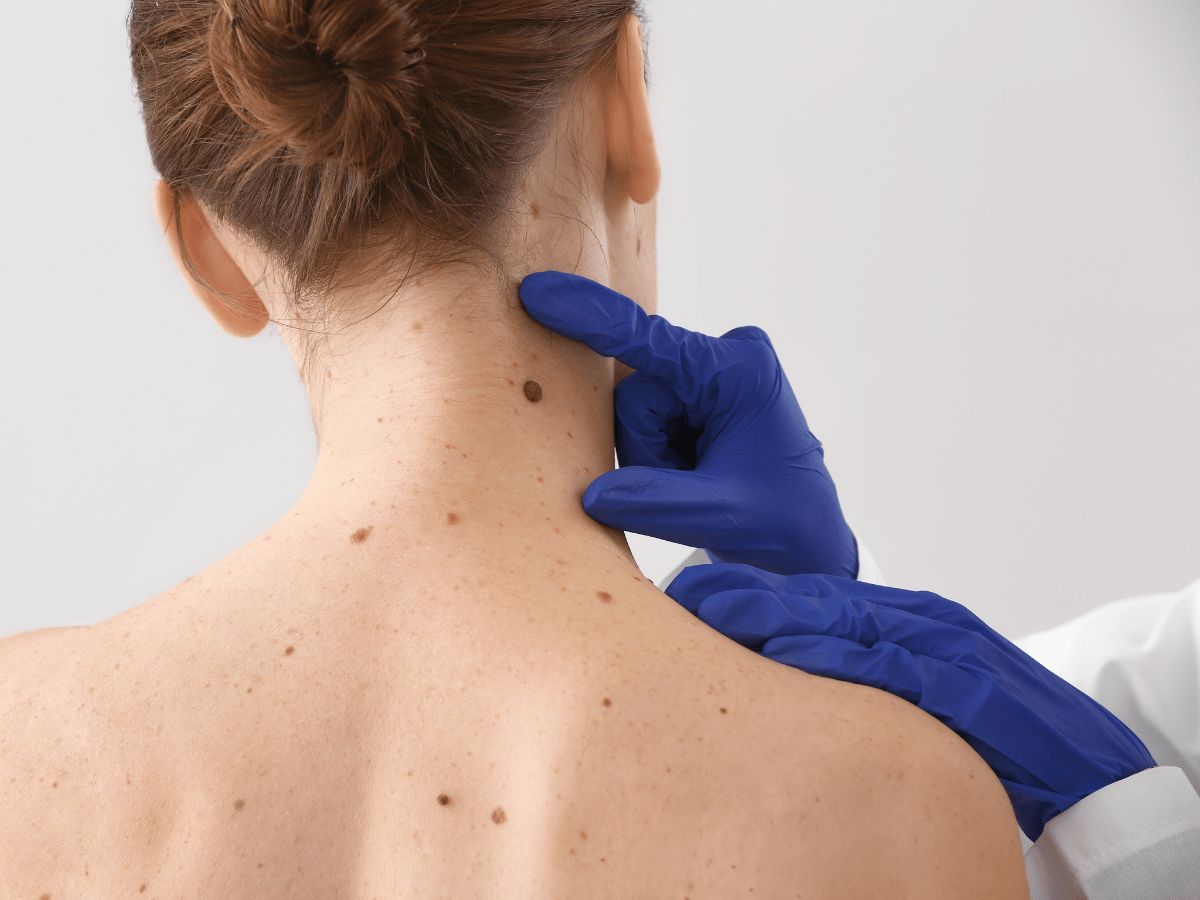What Is Skin Cancer?
At Audrey Echt, MD, PA Dermatology and Skin Cancer Center, we diagnose and treat all forms of skin cancer. Our practice is dedicated to providing the most comprehensive and effective screening, diagnostic, and treatments for all types of this disease. Skin cancer is the most prevalent of all cancers. It affects more than 2 million Americans every year. We offer comprehensive screenings and examinations for those patients who have not been diagnosed with skin cancer but are concerned about their sun exposure or risk factors.
CAUSES
RISK FACTORS
Anyone can get skin cancer, even those who have skin of color. Most people who get skin cancer, however, have lighter skin. People who are more likely to get skin cancer:
- Excessive time spent in the sun
- Use tanning beds or sun lamps
- Resided in an area that gets intense sunlight, such as Florida, the Caribbean, or northern Australia.
Any length of exposure, even if it occurred years ago or was short, increases your risk.
There are also some general characteristics which may increase a person’s risk for getting skin cancer, which include:
- A person’s skin type and the moles on one’s skin
- Family history of skin cancer
- Medical history
- Exposure to chemicals
- Tobacco
SYMPTOMS
The most common warning sign of skin cancer is a change to your skin. And the most common change is something growing on your skin. This growth can appear on the skin in many ways.
DIAGNOSIS
To diagnose skin cancer, a dermatologist looks at the skin. A dermatologist will carefully examine growths, moles, and dry patches.
To get a better look, a dermatologist may use a device called a dermatoscope. The device shines light on the skin. It magnifies the skin. This helps the dermatologist to see pigment and structures in the skin.
If a dermatologist finds something that looks like skin cancer, the dermatologist will take a sample of all or part of the suspicious skin. and the sampled skin will be sent to a lab where it can be examined under a microscope. A biopsy should not cause anxiety. The discomfort and risks are minimal.
Types of Skin Cancer
- Basal Cell CarinomaLearn More
Basal cell carcinoma is the most common cancer of any type with 1+ million new cases diagnosed each year.
- MelanomaLearn More
The deadliest skin cancer accounting for two-thirds of all deaths attributed to skin cancers. 1 in 75 Americans will develop melanoma in their lifetime.
- Squamous Cell CarcinomaLearn More
Squamous cell carcinoma behaves locally like basal cell carcinoma. However, certain tumors can metastasize from the skin.
FAQs
How can I tell if I have skin cancer?
Only a doctor can tell if you have skin cancer. Be sure to talk to your doctor if you notice any unusual moles, bumps, or red patches, or if you notice a change in any moles you already have. It may be a good idea to perform a monthly self skin check. Talk to your doctor if you notice any new moles, bumps or rough patches that are unusual, or if you notice a change in any you already had. Things to look for include: changes in any moles, bumps, or rough patches, moles with a dark color (blue, black, purple, green, etc), moles that are not the same color or shade throughout, moles with irregular/wavy borders, moles that are asymmetrical (one side looks different than the other side), moles that are bigger around than the eraser on the top of a pencil, or spots that itch or bleed.
Do I have a higher chance of getting skin cancer if a family member had it?
If a family member had skin cancer, you may have a higher chance of getting it. Some things, such as skin type, environment, and lifestyle are similar among family members.
If I have skin cancer, am I at greater risk of developing other types of it?
Yes. Studies show that people who have one skin cancer are at greater risk of developing another skin cancer. Perform regular skin self- examinations, and protect your skin every day. Be sure to keep all appointments with your dermatologist, and make an immediate appointment if you notice anything changing, itching, or bleeding on your skin.
Schedule an Appointment
Our team provides thoughtful, expert care for all your skin health needs. We are proud to offer the most advanced general, surgical and cosmetic dermatological services in Raleigh.

